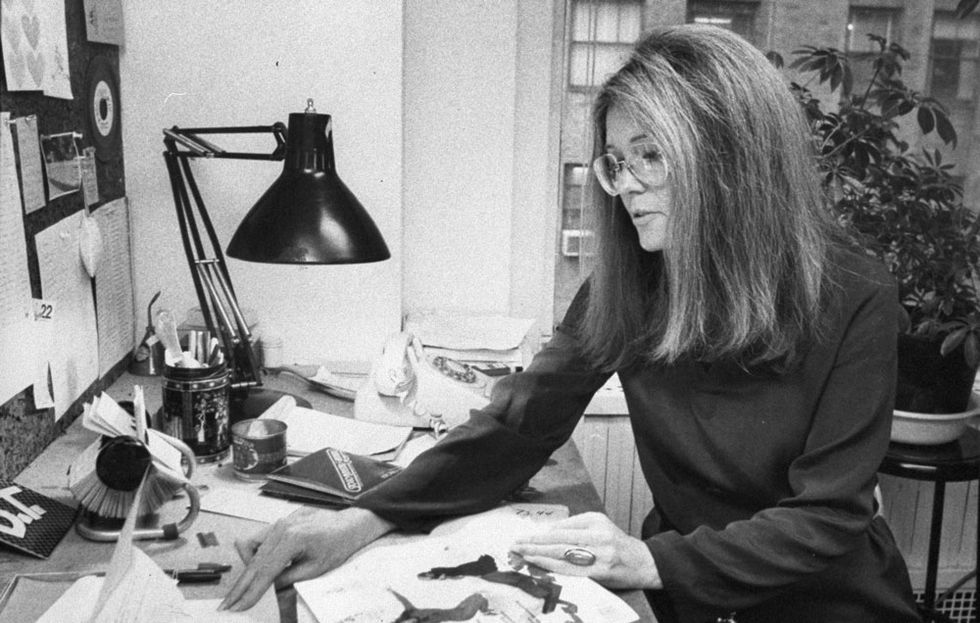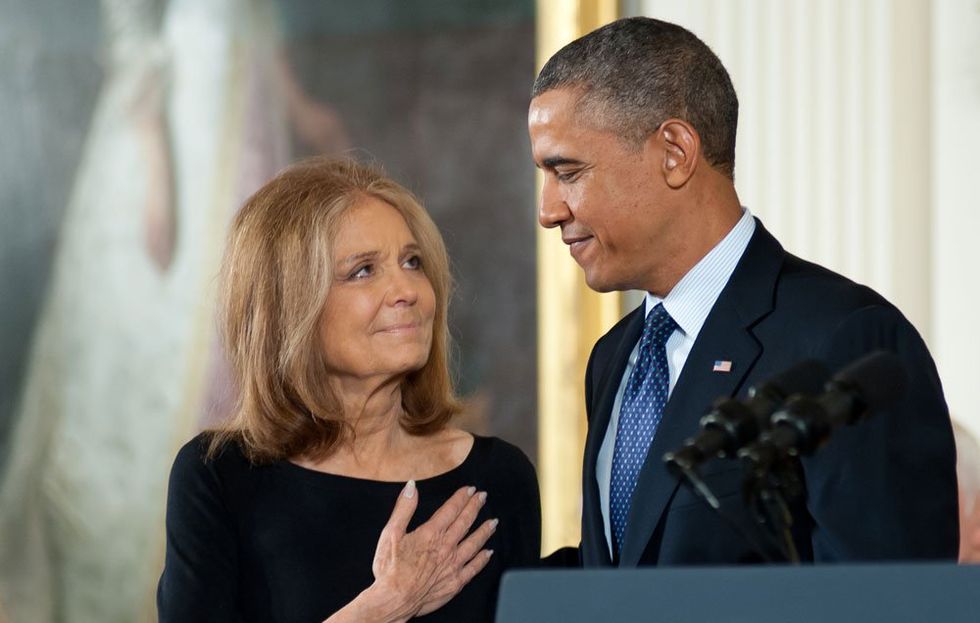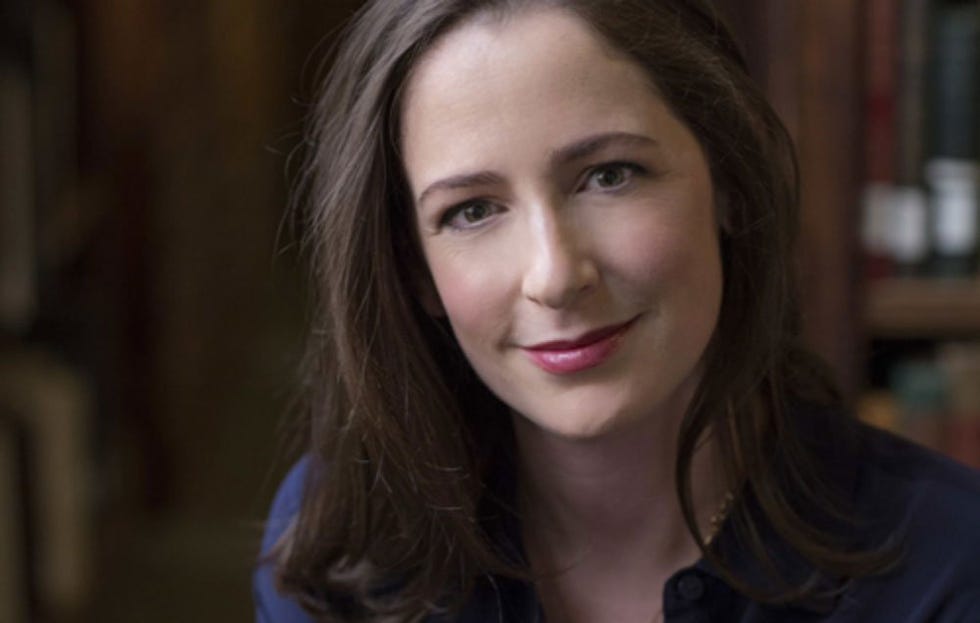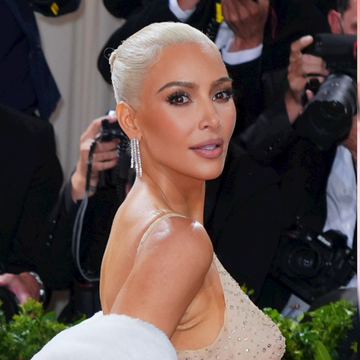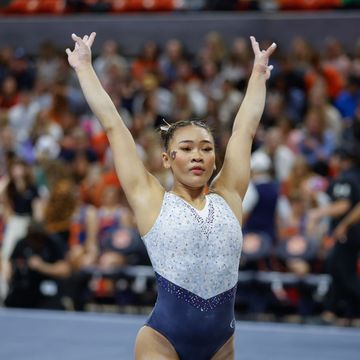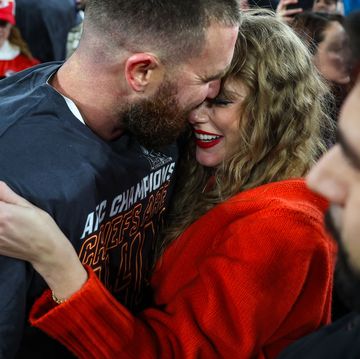On the first episode of Womens's Health's new podcast, Uninterrupted, we spoke with longtime activist Gloria Steinem about what she's learned during her lifelong journey as a feminist, the current social and political climate for women, and her take on the 2016 presidential candidates.
Gloria, who has spent the majority of her 81 years traveling as a campaigner and activist (as noted in her newest book, My Life On the Road), seems to give zero fucks when it comes to calling out Republican presidential candidate Donald Trump on his privilege and his persona.
“I’m sure if [Donald Trump] lost his wallet, there would be no women in sight,” she told us. “First of all, he is pretty much a fraud in almost every way. He was, as they say, born on third base and thinks he hit a homerun. His father was a very successful developer, and nothing makes money as successfully as already having it and then multiplying it—which is basically what he did, and not very successfully... He is not competent, even, either at his job or in his understanding of social issues.”
"[Donald Trump] is pretty much a fraud in almost every way."
When asked about what the American people should do if there's a President Trump in the White House come 2017, Gloria was quick to suggest serious action.
“I hope there would just be a mass uprising,” she said. “Even a President can’t completely undo the Constitution and many of the systems of education or defense. We are a country of big and complex systems, which could not be that easily undone, but I’m sure that the respect for the White House would be close to zero if he were in it.”
On the flip side, Gloria is a huge supporter of Democratic frontrunner Hillary Clinton, and has been for many years. “[Hillary Clinton] represents women,” she said. “She represents the majority interest of women very well, very fiercely, and very devotedly.”
While the Republican and Democratic parties are notorious for not getting along, we wanted to hear how Gloria’s experience of working with women across party lines has impacted how she deals with women with whom she very much disagrees with, specifically when it comes to heated issues like abortion rights and sex education in schools.
“[Other women] have a complete right to, themselves, refuse to use contraception or refuse positions that they regard as unfeminine," she said. "That is their individual right. What they don’t have is the right to tell me to do it. If it’s proposing laws against abortion or against sex education in the schools or whatever form it takes, then they are telling us what to do. I think the reason we win is because we protect their rights. The reason they lose is because they don’t protect ours.”
During the podcast we also chatted with Julie Golia, the Director of Public History at the Brooklyn Historical Society. Julie is an expert in 19th century history, specifically the suffrage movement, and we were curious to learn more about the political lives of the radical and complicated women of the late 1800s.
“[Women of the 19th century] were philosophers, they were politicians, and they thought deeply about policy, and they also thought deeply about what it meant to be a woman,” Julie told us. “Especially in the case of Sojourner Truth, a black woman in a world in which structural inequality came at you from many different places and many different parts of your identity.”
Julie noted that there were plenty of people—both men and women—who thought it was ridiculous that women were fighting for their right to vote. According to the gender norms of the time, women belonged at home and certainly not at the polls. “To be a suffragist was actually to be an incredibly radical thing,” she said. “These women were on the forefront of the left, essentially, in terms of gender politics.”
"To be a suffragist was actually to be an incredibly radical thing."
We asked if there was a parallel today—a group of women or activists who are standing up for something that, in a hundred years, might seem pretty basic to young Americans.
“A parallel that I might give is abortion-positive women,” said Julie. “I think that there a mainstream pro-choice rhetoric that tends to approach abortion with apology, or with the arguments that they don't happen that often, or there were these extenuating circumstances that indicate why we need to make sure that we continue to provide abortion rights. Those are all legitimate, but there's also, I'd say, a minority of rather brave women who come out and say, ‘I am happy I had that abortion. It made my life better. There's nothing to be ashamed of in the experience of abortion.’ A lot of these women, particularly in a milieu of social media, are really vilified. I think that might be an interesting example of the bravery that it took to articulate these things in the public sphere at the time, and a time when women were not supposed to be in the public sphere.”
On next week’s episode, we’ll hear from one of those bold, abortion-positive women, Renee Bracey Sherman. She’ll be sharing with us her abortion story, and the reason why she will never.stop.talking.about.it.
The Women Promoted on This Episode:
Julie Golia wants you to check out Jill Lepore and Alice Kessler-Harris
Gloria Steinem wants you to check out Ai-jen Poo
Follow These Women on Twitter:
Women’s Health: @womenshealthmag
Caitlin Abber: @everydaycaitlin
Julie Golia: @JulieThePH
Gloria Steinem: @GloriaSteinem
Episode Credits:
Uninterrupted is produced by Caitlin Abber and edited by Charesse James, with editorial and public relations support from Lisa Chudnofsky and Lindsey Benoit.
Our theme music is “Bullshit” by Jen Miller
This week’s episode features the song, “What Can the Matter Be?” performed by Geri Gribbi
Caitlin Abber is a journalist, producer, and multimedia storyteller with work published at InStyle, Bustle, PRI, Women’s Health, and MTV.

